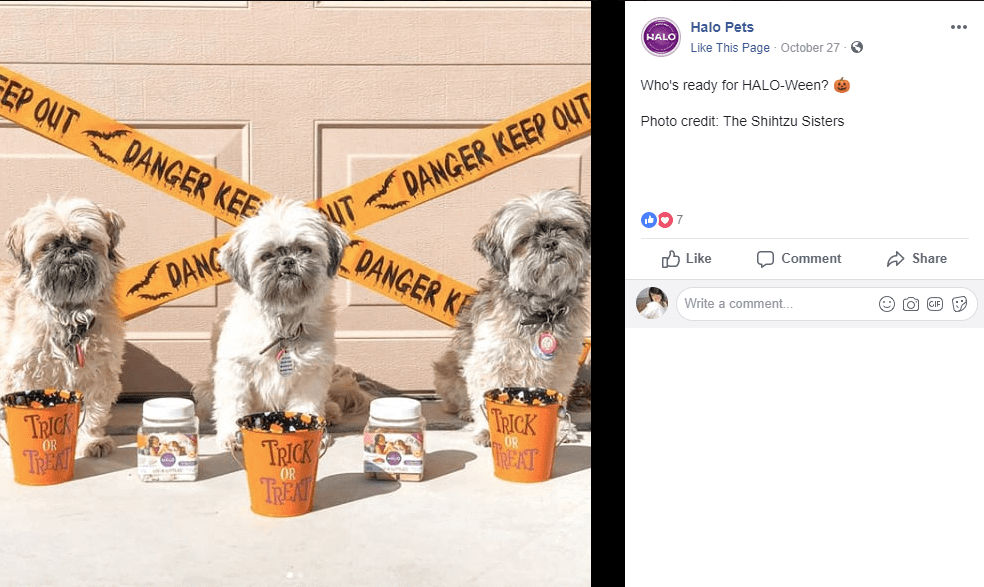How to Benefit from User-Generated Content
Recent Posts
List of Detective Movies Solving Criminals with a Phone Tracker Digital Marketing Companies in Toronto Ad Agencies in London Ontario Global Talent Acquisition: Technology, Data, and Strategy for Success Leveraging Link Exchanges for Enhanced Ad Campaigns Enhancing User Engagement Through Intelligent Conversation Analysis How to Deal with Career Stagnation: Strategies for Moving Forward Blueprint for Success: The Art of Mockups Customizing Your Intranet Platform for Enhanced User Experience A Comprehensive SEO SWOT Analysis The Future of Newspaper Advertising in 2024 What VPS to choose for your shop?People love sharing their opinions, happy moments, comments, and other stuff online. All that is called user-generated content and can be found almost everywhere. YouTube, Facebook, and other social networks have sprouted and benefited from this content.
User-generated content (UGC) can help businesses to grow and improve trustful relationships with their customers if used wisely. Recent research shows that UGC impacts buying decisions of about 90% of customers more than emails or even search engine results.
Suppose you’re looking for more leads and customers, aiming at establishing solid relationships with them and saving some time and money. In that case, user-generated content is the type you need to include in your marketing strategy.
Set up your goals
UGC can spark conversation, build trust and boost engagement, but if misused, it may work the opposite way and make your customers leave you. So, like with any other type of content, you need to set clear goals for the user-generated content to work perfectly. Here are the most obvious ones:
- Building trust. Users trust opinions from other customers more than the brand’s words, ads, or celebrity statements. It makes user reviews a good base for building brand awareness and creating trust among new users, but only if those reviews are genuine and not paid.
- They are boosting brand engagement. User reviews, videos, comments, and other content types often stark online discussions and gather likes and shares across various communication channels.
- Better audience understanding. User-generated content helps you better understand your customers’ needs that your business can help them with. It also shows their most common issues and allows you to react to them much more quickly.
- SEO benefits. High-quality content means more engagement and search visibility of your site for your target search terms. When you choose only relevant content that speaks to and educates your users, it helps you attract more traffic and get higher in SERPs.
- You are saving time. With user-generated content, you need far less time to create an excellent, engaging post for social media. Utilizing hashtags, videos, and other media, as well as comments, saves much effort during the content creation.
Choose the right platform.
Each platform, social media network, email, or site requires a different approach. Choose the platform according to your goals and the target audience. Knowing where your audience engages the most is crucial to choose the right platform for posting user-generated content. You cannot start the campaign on Instagram just because studies say it’s the best place for posting media content now if your audience is not there.
We focus on direct response and customer acquisition in e-commerce, lead gen, and mobile. When it comes to results and leads, we speak your language.
Businesses primarily use UGC on social media. But a few cases make this kind of content a perfect base for the business’ website. Thus, user reviews are great to use in your Testimonials section or for case studies explaining how to use your product.
Social networks are the best platforms to post user-generated content.
- It’s easy to find what users post about your brand by skimming through hashtags. People often set branded hashtags when they like the brand, so you can quickly find good user posts about your product.
- There is not much text in Twitter posts, but sometimes it’s enough to support some idea or get a nice user video of your product. Like on Instagram, you can search by hashtags here.
- Facebook has the broadest choice of user-generated content that you may use on your page. Encourage users to share their stories, photos, and videos about your brand. Facebook’s algorithm is focused on comments, so posts that spur discussions should be your focus point.

Source: Halo Pets on Facebook
Choose the type of content.
Always ask your users what texts or photos they want to use on your site or social media accounts. You should speak to them directly to get the proper type of content from your users. There are a few ways to ask users for the content:
- Run contests. Set up the rules, reveal the prize (it can be merchandise, free service, or an account), and then choose the winners to show their media or testimonials on your page.
- Hashtag campaigns. Those are especially popular on Instagram and may serve as a word-of-mouth advertisements. Sometimes it’s enough to reward your users with their photos featured on your Instagram page. Use the contest approach here too.
- Statistics show that 63% of US consumers and 66% of UK buyers trust the user’s post-purchase photos more than the brand’s media. Thus, you can offer a next-purchase discount for an unboxing video. You should find ways to incentivize your users to leave their reviews on your site and add pictures and videos.
- Surveys and user stories. Original researches and insights are that form of content that always get tons of traffic, shares, and comments. Include insights from your customers in your industry reports and share them with your audience.

Source: Cheerz on Instagram
Set clear rules for the info that you want from your users. Don’t change those rules while gathering the information not to spur negative comments.
Collaborate with your users
User-generated content starks engagement and improves trust. That’s why one of the main things about getting UGC is creating a solid community around the brand. It would be best if you were attentive to what your community says. Answer their questions, treat their issues, stay connected during the product launch and show the personality behind the brand. When users know that someone on the other side listens, they will share their insights more openly.
The results of collaboration with your users will be unique content that you may use on various platforms and in multiple forms. Here are a few ways of such cooperation:
- Collect their questions from your support chats to know what issues they’re addressing and what new features/products they would like. The most popular questions are the primary source for your FAQ or Help section on the website.
- Users may often give you ideas for new articles and videos on your website. Always read the comments they leave on your social media posts: users often share what they want to read/watch from your brand.
- Never take without permission. You should always ask your customers before you use their photos and videos on your site or social page. Even if it was a part of the contest, you should warn users that their image will appear on a page and ask them to look before publishing.
- Always credit the content. You shouldn’t post it as your creation even after a user permits you to use their photo or video. State clearly that a particular user kindly offered the image and give them full credit in the caption.
You can also set up alerts to track the mentions of your brand/business/site online. Google Alerts are easy to set up to receive emails with words of your brand. Thus, you get early access to the influencer info posted about your business and may use it in your content strategy. You can also reach out to the bloggers who mention your brand and offer them collaboration, try to build some links, or establish relationships.
Measure and test performance
There’s no way back when you decide to include user-generated content in your marketing strategy. Every step should be tested and measured; otherwise, it has nothing to do with the process.
Check out what goals have been reached and what you should improve to achieve more success with the UGC. Thus, if your goal was to get more traffic to your site with the help of an article that reveals the most common issues your users addressed in their comments, you should perfectly optimize that article for search. And it would be best if you properly promote that article through your social media and email channels.
- Choose the right keywords for any content. Be it a “How-to” article or a case study, you need the correct phrases for other users to find them online.
- Create appealing and relevant titles and descriptions that will appear in the search results. They should incentivize people to click on them to learn the needed information.
- Share those articles and videos on social media and build backlinks to them.
Note: If you want to know more about optimizing your page for SEO, here’s a quick video tutorial for you:
You can repurpose the most successful posts later, add or change the parts, get new content from users, etc. and then promote it again on social and in emails.
You can also use tools that track the post’s performance on social media. Remember, the likes and shares only don’t count and bring little to no traffic and sales for you. Facebook announced that it would prioritize those posts that spark meaningful discussions in the News Feed. You can increase engagement by encouraging readers to leave their comments and participate in conversations.
It will pay off
Well, it’s your turn now. Ask your users for collaboration and try to find ways you can incentivize them to share their content with you. When your customers, users, and readers become your advocates, more trust in your business pays off, resulting in more sales.
Modern users prefer content that resonates with them and is about them. That’s why the brands may benefit from the user-generated content and get a neverending source of ideas and fresh, unique content.
Author bio:
 Helen is a content marketer at Ahrefs. She explores new things every day to impress her readers with catchy stories. Apart from all that marketing stuff, Helen loves listening to rock music, reading, and traveling. A lot! Feel free to follow Helen on Twitter.
Helen is a content marketer at Ahrefs. She explores new things every day to impress her readers with catchy stories. Apart from all that marketing stuff, Helen loves listening to rock music, reading, and traveling. A lot! Feel free to follow Helen on Twitter.
